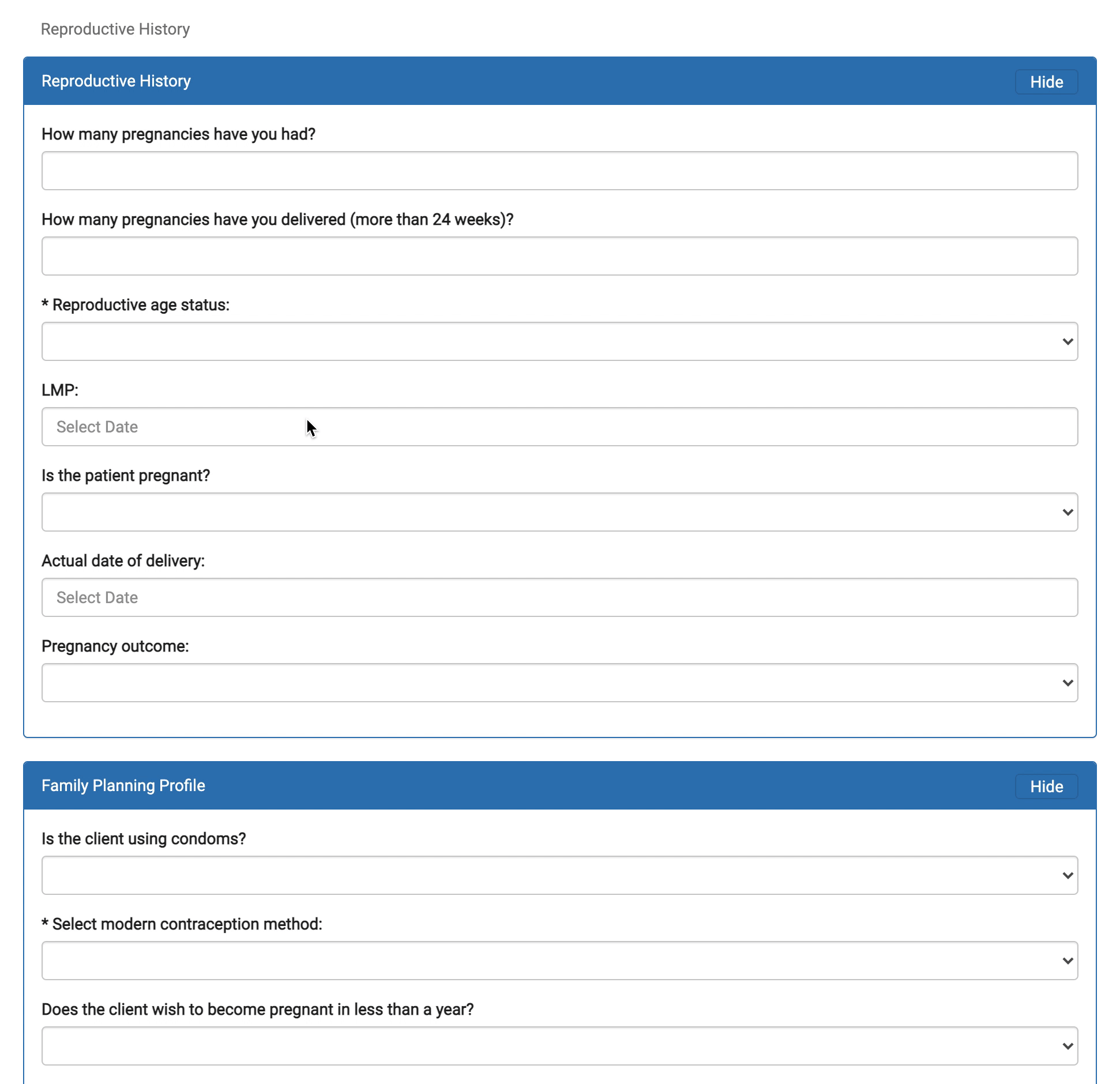Validating Dates
This type of validation enforces certain conditions for date inputs. You can use date validation to guarantee that a date input only allows:
- Past or present dates
- Past, present or future dates
Here's a question from the Reproductive History section of an HIV Adult Return visit form:
{
"label": "LMP",
"id": "lmpDate1",
"questionOptions": {
"concept": "a89ff758-1350-11df-a1f1-0026b9348838",
"rendering": "date"
},
"type": "obs",
"validators": [
{
"type": "date"
}
]
}This question seeks to establish when the client last menstruated (LMP is short for Last menstrual period). Note that the first value of the validators array is a validator of type date. To properly understand what this date validator is doing, it might help to look at this snippet from its source code:
// Question validator factory
if (question.validators) {
_.forEach(question.validators, (validator: ValidationModel) => {
switch (validator.type) {
case 'date':
list.push(this.dateValidator);
const allowFutureDates: boolean = (<DateValidationModel>validator)
.allowFutureDates;
if (!allowFutureDates) {
list.push(this.futureDateRestrictionValidator);
}
break;
}
}
}
}We see that the validator optionally has a property named allowFutureDates and that this property defaults to false. The date validator will, by default, not allow you to set a future date as the value of the field. If you do so, it will render a validation error:

You can override this behaviour and permit setting dates in the future by setting allowFutureDates to true in your validator definition:
{
"validators": [
{
"type": "date",
"allowFutureDates": "true"
}
]
}